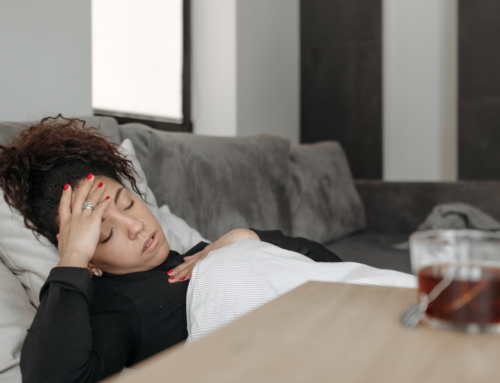If you have a uterus and are still menstruating, then you might be one of the estimated 120,000 in New Zealand who have endometriosis.
For some it can be debilitating affecting every area of their life while others may experience mild or no symptoms.
It’s definitely a thing
Your uterus is lined with endometrium. Endometriosis is when this tissue is found outside of the uterus, usually in the pelvic/lower abdomen area. When you have your period, not only will you bleed from your uterus, but the tissue that has grown outside of your uterus can also behave the same way, but as there is no way for it to get out it gets stuck and it’s this that causes the pain and other issues.
Unfortunately for some, the pain may not be confined to during their period, and they may also have pain or discomfort during sex.
There are other symptoms you need to be aware of too. You may have bloating and bowel issues (perhaps diagnosed as Irritable Bowel Syndrome), fatigue, bladder problems, and even be emotional or moody. For some women their fertility can be affected.
Despite a huge amount of research the cause of endometriosis is still not fully understood however genetics appear to play a strong role.
Getting diagnosed
Some discomfort during your period or sex can be normal however if distressing pain is part of your daily or menstrual life pop along and see your GP. They can then refer you for further specialist help through your local DHB.
If you have private health insurance you can self-refer to a specialist gynaecologist but probably the best first stop is your GP for an overall health assessment. They can then send a referral letter to a specialist of your choice.
Endometriosis is definitively diagnosed by viewing your pelvic cavity via laparoscopy (key hole surgery). This is done under general anaesthetic and a bit of the endometriosis will be removed for testing.
What’s next
Once you have been diagnosed, the next steps will depend on things like your age, whether you have had or would like to have children, the severity of the symptoms, as well as what treatment you prefer. Endometriosis cannot be cured as such but you can be treated and managed. There are surgical options along with pain medication and contraceptives.
There are many other things that endo sufferers have found to help such as diet changes, massage, acupuncture, meditation, Traditional Chinese Medicine, physio, nutritional and herbal supplements and increasing physical activity. There is lots of information available online for you to browse and decide what you would like to try. Endometriosis New Zealand is a great place to start. They ‘get it’ and will provide you with help, support and advice.
Don’t want to be a drama queen?
On average, it takes more than 8 years for diagnosis, from the time symptoms are first noticed! There are many reasons for this including us thinking these problems are normal, or feeling uncomfortable or embarrassed about talking about it. Pain and distress should not be a part of your life, and the professionals working with endometriosis are passionate about helping sufferers. If your gut instinct is whispering to you that something is up, trust it and go have a chat with a GP.
Is endometriosis part of your life?
Click edit button to change this text.
 Written by Sophie Aaron
Written by Sophie Aaron
An avid yogi and free spirit, this babe loves all things health and fitness related. When she isn’t eating something strange and healthy looking, you’ll find her thrift shopping or getting out in nature.
Favourite place she’s travelled to: India






Leave A Comment
You must be logged in to post a comment.